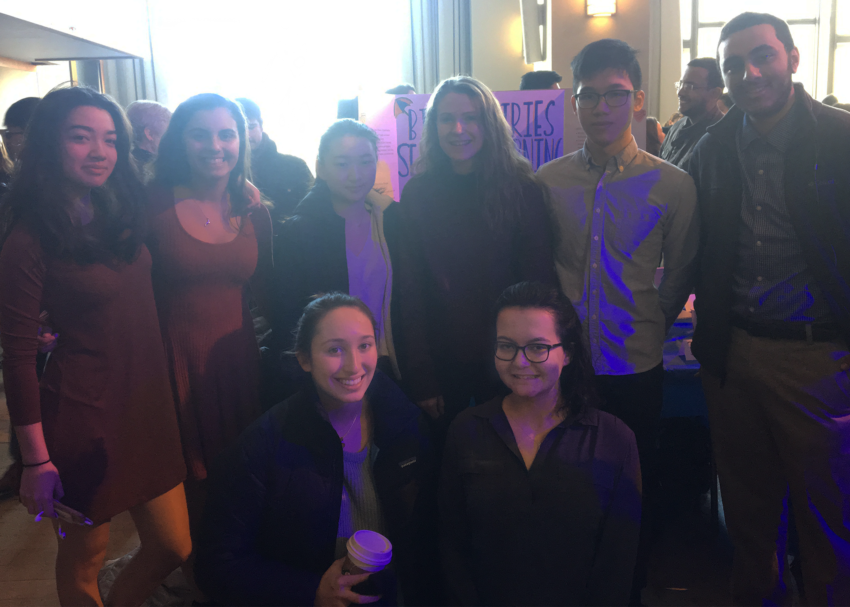At Northeastern, there are many ways to take part in experiential learning. One of the more unique options is through service-learning—a hands on course that integrates classroom knowledge with real-world experiences to address specific needs in the community.
Taught by Biology Professor Gail Begley, Inquiries in Biological Sciences offered a class of first-year students the opportunity to expand their knowledge in biology by focusing on the microbiome, while also giving them the opportunity to visit many partner locations to teach children and adults the fundamentals of biology.
“We’re really trying to make sure students get core concepts and skills through the curriculum, but at the same time our students are relearning basic biology,” said Begley. “You might think you know mitosis, but then you have to teach it to someone who asks a lot of questions, and you realize you don’t know it as well as you thought. Our students continually learn – by teaching, by researching, in and out of the classroom.”
Members of Begley’s class are split up into many different groups, partnering with both after-school groups for elementary and middle school students, as well as a multi-service support program for Spanish-speaking women.
Biochemistry major Madison Doherty has spent her semester working with 3rd and 4th graders from the Boys & Girls Club of Boston Hennigan Club, teaching biology.
“It was really cool to see how their knowledge grew over the course of the semester,” Doherty said. “It also really helped me to better understand concepts because we had to be able to simplify them for a younger level of learning.”
For Megan Cullis, a first-year biology major, she got to be part of teaching in an after-school program with 6th graders at Citizens School, which works to extend school days for low-income children to help them gain more opportunities to explore their interests. Northeastern’s service-learning program supports several groups at Citizens School to teach microbiology like Cullis, but also teaching about robotics, culinary techniques, and more.
Biology student Nam Le also worked with middle-schoolers at the United South End Settlements after-school program. “At first, they were very shy and not too open to learning, but as the semester went on, they started to feel more comfortable and they were able to learn more, which was really great to see,” he said.
Jenna Zappetti, a Cell and Molecular Biology major, had a bit of a different experience. She worked at Mujeres Unidas Avanzando, a program that helps Latina women prepare for the Hi-SET, the high school equivalency exam. Zappetti and her group travelled to Dorchester, MA to tutor young women in Biology, primarily speaking Spanish. Additionally, they got to bring some of the women to a lab in Behrakis, to show them some hands-on lab skills. “We got to show them a rat dissection, which they thought was so cool,” said Zappetti. “It really inspired a new curiosity in me about science.”
Working with Spanish speaking adults allowed Zappetti to think critically about the curriculum and how to teach it. “I speak Spanish, but I had to take time to figure out what I wanted to do, and then translate it, and I needed to make sure I knew exactly what I wanted to say,” she said. “I think it helped me review and solidify topics like DNA replication and mitosis, because I really needed to know those very specifically and clearly to be able to teach them.”
Overall, this service-learning experience provides students with many skills outside of the important biological concepts. They are able to learn communication and collaboration as they work with each other, with students of different ages, and with their volunteer coordinators.
“Our students are serving as role models and encouraging kids to think about science, and consider college,” said Begley. “And I think it helps inspire them to learn more too.”

